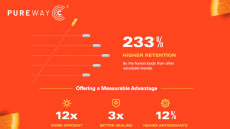Call for stricter monitoring of folic acid intake
The European Food Safety Authority's (EFSA) Scientific Cooperation Working Group (ESCO), in a report on the risks and benefits of folic acid fortification of food, states that the uncertainties in relation to cancer risk highlight the importance of ensuring monitoring systems are set up for assessment of folic acid intake.
“It is also important to distinguish between different sources of folic acid, i.e. from fortified foods and from supplements as the pharmokinetics may vary depending on the form and dosage (single, multiple) of application,” stated the scientists.
Folate is found in foods such as green leafy vegetables, chick peas and lentils, while folic acid is the synthetic, bioavailable form of the vitamin used in fortification programmes worldwide, as well as in supplements and other fortified foods.
Evidence reviewed
ESCO was mandated to review current practice in EU member states regarding the level of voluntary fortification of foods and to consider new evidence regarding the risk of high intakes of folic acid and the need for a review of current guidance on safe upper levels of folic acid for all population groups.
The group’s report states that there is a suggestion from animal studies, randomized controlled trials and trend data for colorectal cancer incidence of a possible association between high intakes of folic acid and promotion of cancer development and progression.
They stress, however, that epidemiological data and human studies evaluating the link between folic acid intake and cancer are inconsistent and not conclusive.
Further research
The report concludes that present data are insufficient to allow a complete risk assessment, and the working group said that careful monitoring of emerging evidence on any adverse effects of folic acid fortification is required:
“The targeted generation of additional data and knowledge, both epidemiological and animal/mechanistic, might be important in informing the risk/benefit assessment of folic acid in the future.”
EFSA said that the scientific group’s report will be now assessed by the agency’s Panel on Dietetic products, Nutrition and Allergies (NDA).
Wide debate
The agency said that the ESCO report was informed by the discussions at a meeting in January of this year where over 60 scientific experts from the EU, Switzerland, the US and Canada debated the latest scientific developments regarding folate and folic acid.
Opponents of folic acid fortification claim epidemiological evidence suggests a slight increase in colorectal cancer rates following the introduction of fortification. Such associations have been noted in the US, Canada, and Chile.
Pregnancy supplementation
Currently, supplementation with folate and folic acid is recommended to all women of child-bearing age to reduce the risk of neural tube defects (NTDs), including spina bifida and anencephaly.
Mandatory fortification of wheat flour or bread as a strategy to reduce the prevalence of NTDs is currently under review in the UK but has not been endorsed in Sweden or Italy, and while fortification has been recommended in Ireland its implementation has been deferred.
The ECSO report can be read here











